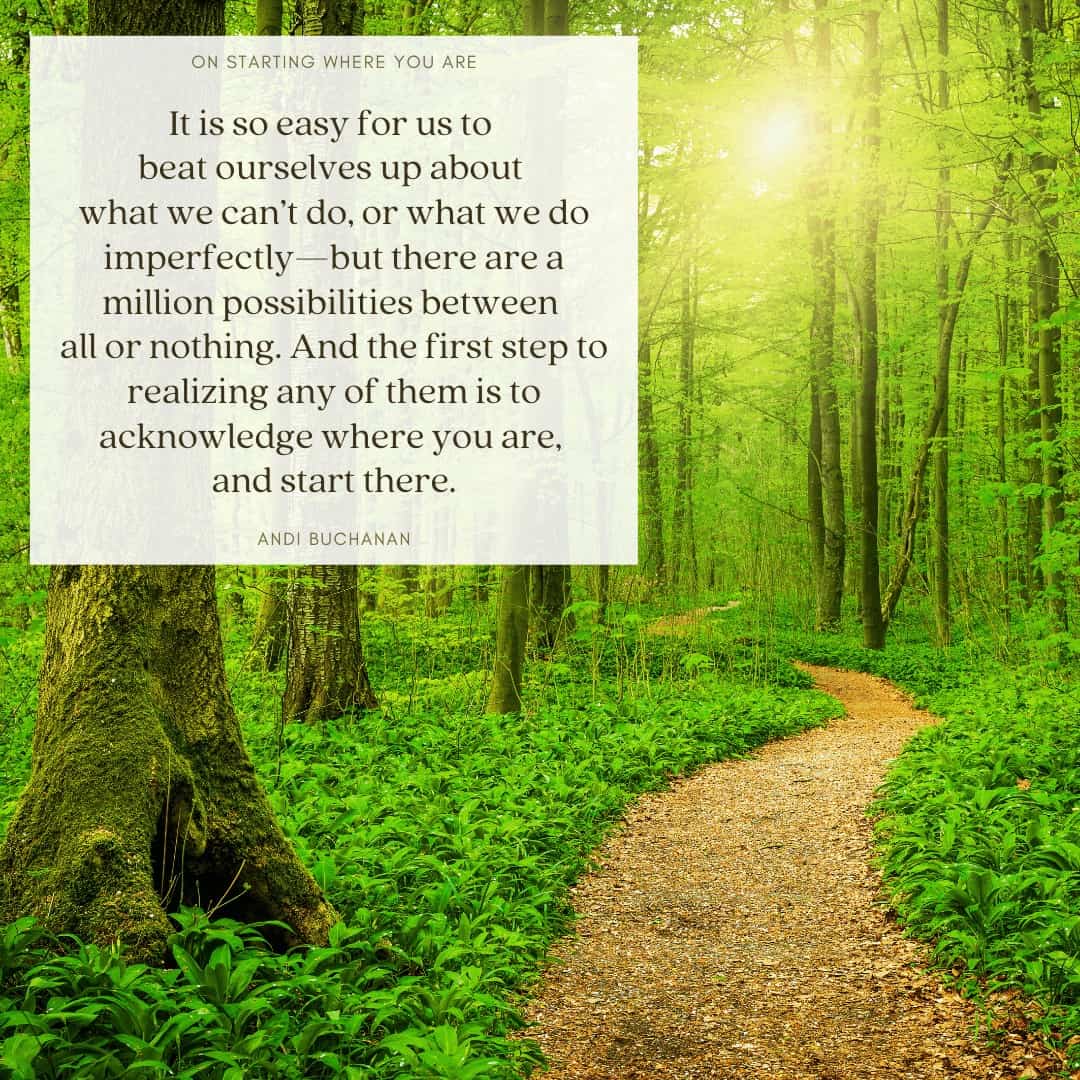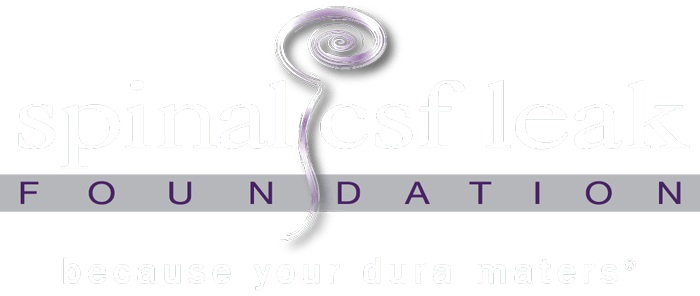
By Andi Buchanan
Taking responsibility
Years before I had my spinal CSF leak, I was an avid yoga-goer. I did Ashtanga yoga and really loved the practice of it, the way that each day on the mat offered a different possibility. One day, I was struck by something the teacher said during class. We were doing a forward bend, and he encouraged us to “take responsibility” for our practice. He said that often when we move into a pose, like a deep forward bend, in this case, we might say to ourselves, “Oh, I’m not flexible, I can’t reach that far,” or we might compare ourselves to others, saying, “I can’t bend as deeply as she does, I can’t touch my toes.” He saw this kind of self-talk or self-criticism as a way to evade responsibility.
My first reaction was to resist that—Evading responsibility? Just by saying I can’t touch my toes?—but I listened as he explained what he meant. He told us that there was another way to approach these moments in our practice, when we felt we couldn’t fully do what we were supposed to be doing. Instead of saying, “I’m not flexible,” we could say, “This is how far I can reach.” Instead of saying, “I can’t touch my toes,” we could say, “I’m comfortable resting my hands on my shins.” This was revelatory to me: taking responsibility for my practice—for myself—simply meant acknowledging where I was that day, in that moment, without judgement or blame or reprimanding myself to be better.
Being where you are
This was not only good advice for doing yoga, but also for being alive in the world. I had to work hard to summon this kind of loving responsibility-taking for myself when I had my spinal CSF leak and felt helpless and frustrated by all I was unable to do. And I currently have to remind myself of this accepting, embracing mindset as I grapple with the chronic daily symptoms of Mast Cell Activation Syndrome (MCAS). Reminding myself that it’s okay to be where I am is a daily practice.
It is so easy for us to beat ourselves up about what we can’t do, or what we do imperfectly—to get caught in the snare of “all or nothing” thinking. But there are a million possibilities between all or nothing. And the first step to realizing any of them is to acknowledge where you are, and start there.
Starting where you are
“Start where you are” is our theme for #duradash precisely because everyone affected by spinal CSF leak is affected in different ways, and although many people have similar stories about their experience, no one’s journey is exactly the same. But starting where you are means that everyone who wants to is able to participate. For some people, that might mean reading a book, listening to music, or journaling while flat. For others, it might mean walking short distances. And for others, it might mean gardening or hiking or even more rigorous activity, years after recovering from their spinal CSF leak.
The purpose of #duradash is not only to raise money to fund more crucial research into spinal CSF leak, but also to raise awareness about it, and to help everyone in our community feel good about “starting where you are.” So, for those participating in this year’s #duradash, no matter where you are in your journey with spinal CSF leak, any activity you can do counts towards your own personal #duradash goal. And all of it helps raise awareness among others about what life is like with a spinal CSF leak.
Thanks to my spinal CSF leak, my days of doing twisty, athletic, physically challenging yoga are behind me. And thanks to MCAS, running or even walking too fast can send me into a days-long flare. But I do my best to remember, this is where I am, and that’s okay. I don’t have to be mad at myself for not being better, or for not being able to do more. I can do what I can do. And I can start right here, where I already am.
Further reading:
Register and find out more about #duradash here: https://spinalcsfleak.org/duradash/
